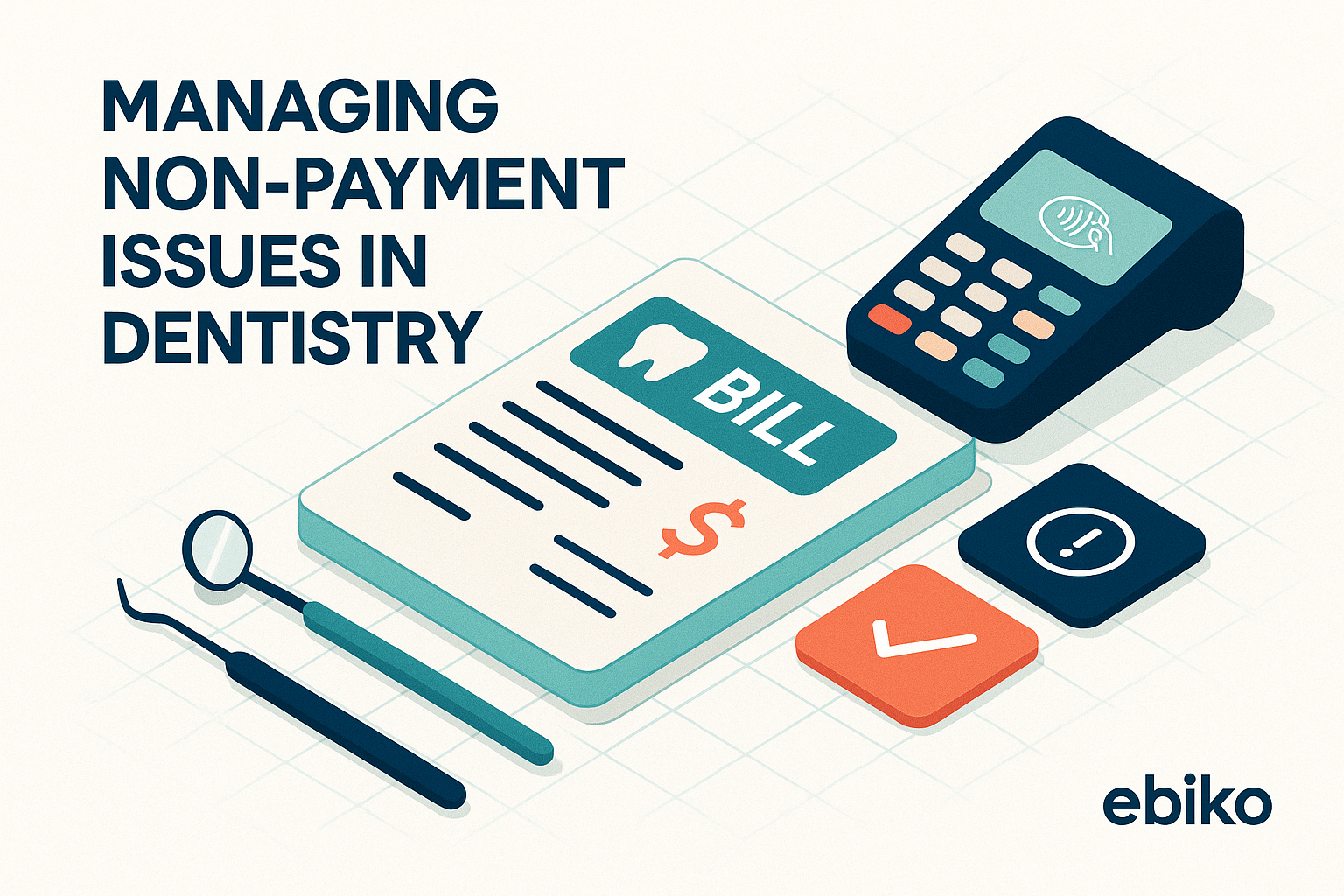Handling Non-Payment Issues in Dentistry: A Guide for Toronto Dentists

Dentists across the Greater Toronto Area frequently encounter billing challenges, particularly after emergency treatments or high-value procedures. While the majority of patients settle their bills promptly, there are instances where dentists are left with unpaid balances despite delivering complete care. This article examines how dental professionals in Toronto can proactively manage non-payment issues, access small claims court as a solution, and leverage best practices to avoid future complications.
Understanding Non-Payment Scenarios in Dental Practice

One particularly relevant scenario involves patients who seek emergency services — such as for a fractured tooth or infection — and then disappear after receiving immediate care. In such cases, dentists deliver essential treatment and sometimes even provide professional referrals or diagnostic planning, only to later find invoices ignored or payments unresolved. These non-payment incidents not only affect revenue streams but also put administrative pressure on dental staff managing follow-ups.
Options in Small Claims Court for Ontario Dentists

For outstanding debts under $12,500, Ontario’s small claims court offers a manageable and relatively low-cost legal avenue. Although this judicial route might seem intimidating for dental professionals, understanding the basic structure of the process can help mitigate uncertainties. Here are the essential steps:
- Document Collection: Before proceeding, dentists should collect all pertinent records — treatment notes, consent forms, reconciliation logs, and postage or communication receipts.
- Low Filing Costs: Depending on your chosen filing method (online or in-person), costs range between $30 and $100, making it cost-effective for recouping moderate unpaid balances.
- Timelines: Courts typically schedule hearing dates within 60 days of filing, which allows for a relatively swift resolution compared to higher courts.
- Final Verdict: Small claims decisions are usually binding with limited room for appeal, so professional presentation and complete documentation are key.
Critical Considerations Before Legal Action

1. Assess Past Experiences Within the Practice
If your clinic or colleagues have previously brought patient disputes before a small claims tribunal, reviewing outcomes can offer valuable insight into what evidence persuaded the judge, how to manage expectations, and whether the outcome was worth the pursuit.
2. Manage Patient Privacy Within Canadian Regulations

When submitting evidence to support a claim, it’s critical to remain compliant with Ontario’s Personal Health Information Protection Act (PHIPA), which aligns with Canada’s national privacy expectations. While dental records are admissible in court, dentists must redact sensitive details unless explicitly authorized or mandated by legal proceedings. To avoid breaches, consult your legal advisor or dental association beforehand.
3. Evaluate Patient Relations and Brand Reputation
Although pursuing legal recourse is your right, doing so may influence patient perception. In today’s connected environment, even justified cases can attract online scrutiny. To reduce potential backlash, ensure your clinic maintains transparent billing policies and open communication before elevating issues legally.
4. Strengthen Preemptive Payment Strategies

To reduce the need for legal action altogether, implement stronger internal controls such as:
- Requiring partial or full upfront payments for non-insured or emergency procedures.
- Offering dental financing programs or third-party credit solutions like Carestream integrated payment systems.
- Developing accessible, clearly written billing agreement forms approved before treatment begins.
Pursuing Legal Action: When It’s Time to File

The decision to pursue legal collection ultimately depends on the patient’s responsiveness and the outstanding amount. If no communication is returned after polite billing reminders — or if a patient has explicitly stated they won’t pay — filing through small claims court may be a necessary step to demonstrate your clinic’s commitment to responsible accounts receivable management.
In the scenario described at the beginning of this article, where an emergency treatment was provided and no payment or cooperation followed, moving to legal enforcement may serve not only to recover what’s owed but also to signal professional boundaries to future patients.
Tools and Resources for Dental Billing in Canada

Canadian dental clinics should equip their administrative workflows with reliable infrastructure. Modern solutions provided by companies like EBIKO Dental support billing clarity and reduce friction in patient interactions. From digital imaging systems compatible with insurance submissions to treatment planning tools that show patients transparent quotes, leveraging the right products can minimize financial disputes.
Explore EBIKO’s collection of dental software and management tools, or integrate intraoral scanners with patient case reviews for faster treatment closures, using our full suite of scanner products and imaging technology optimized for Ontario dental practices.
As the dental profession continues to evolve with increasing regulatory demands and patient expectations, proactive financial practices supported by modern technology can help Toronto dentists deliver care without compromising administrative stability.

